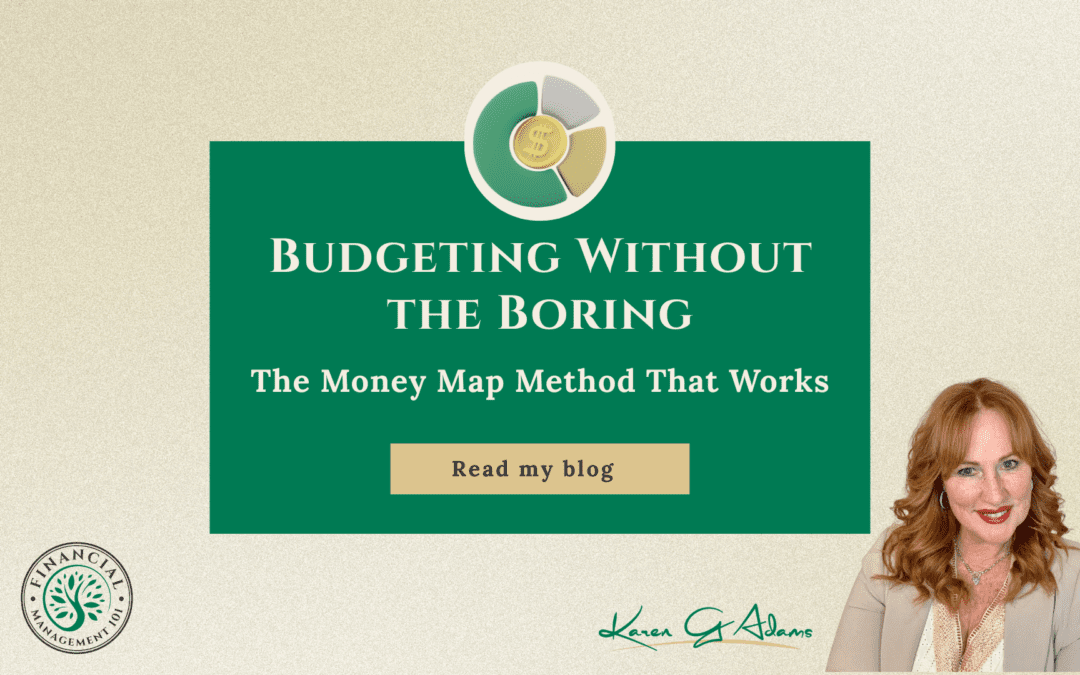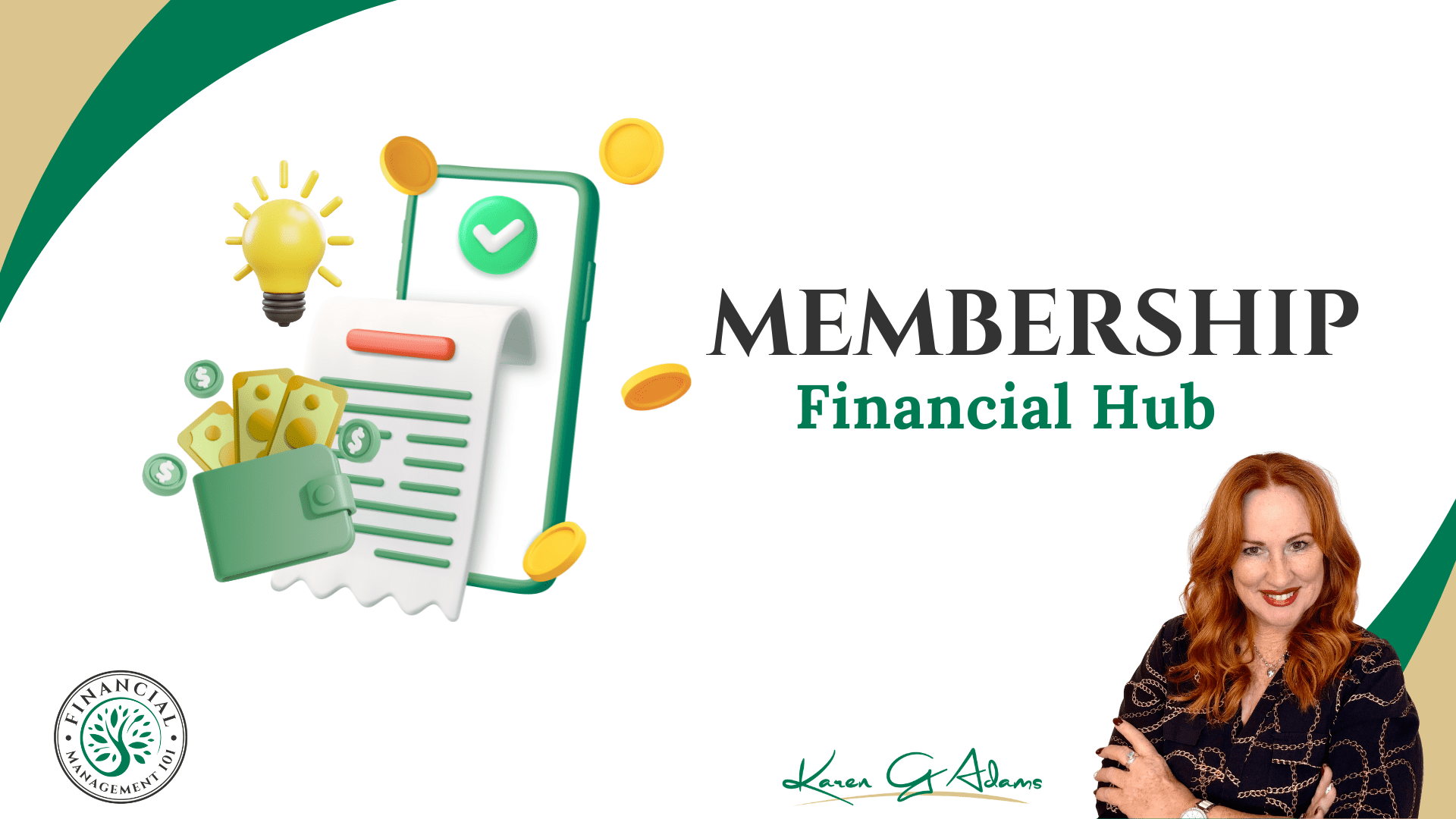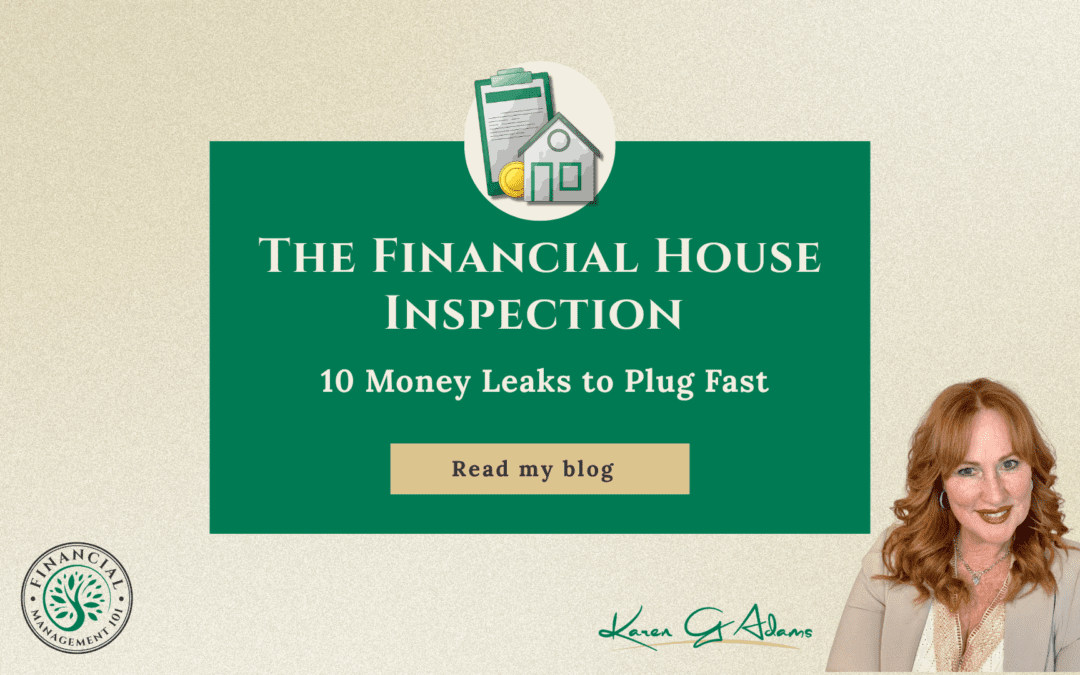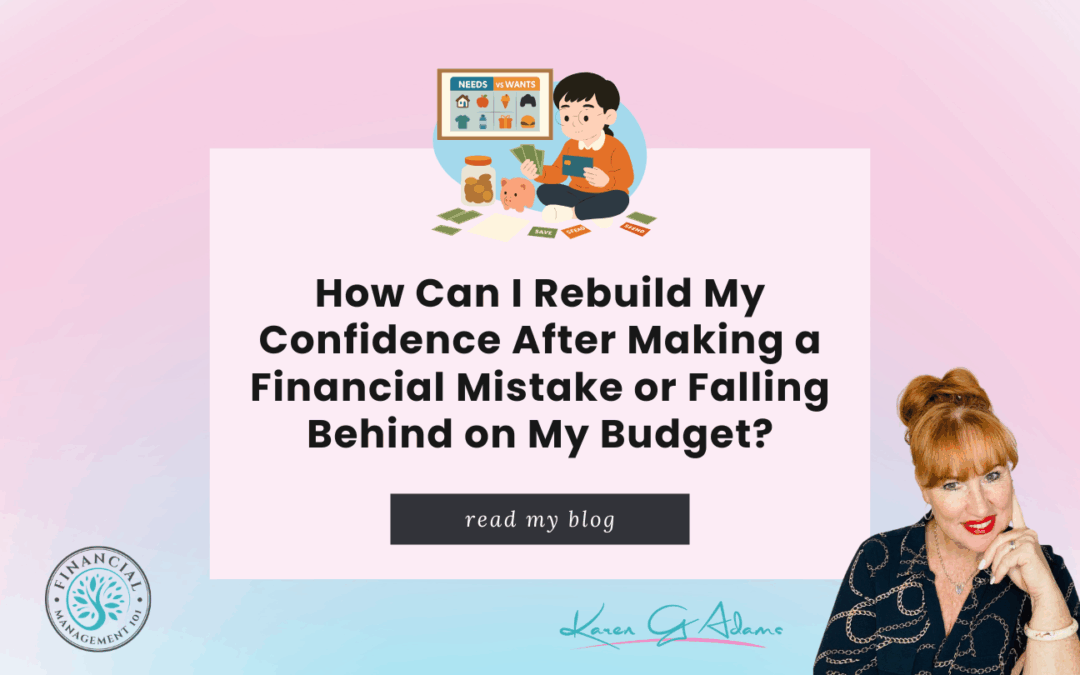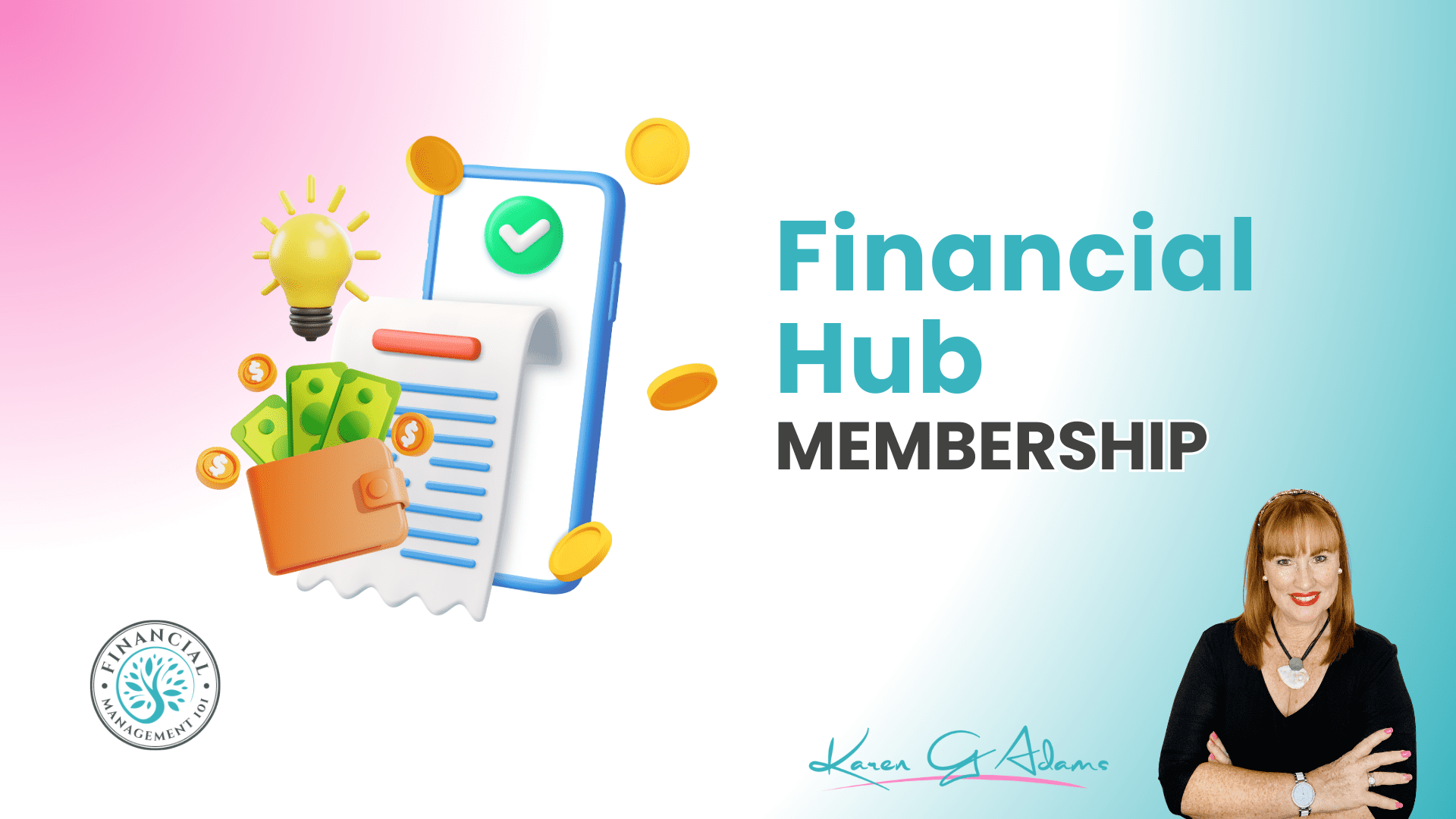
The Emergency Fund Isn’t Optional – How to Build One Without Feeling Broke (and why it changes everything)
Let’s talk about the one money habit that turns chaos into calm faster than almost anything else:
An emergency fund.
Now before you roll your eyes and think, “Karen, I knowww… but I can barely afford groceries,” stay with me.
Because I’m not about to tell you to magically save three months of expenses overnight, live on rice and sadness, and stop enjoying life.
That’s not financial education – that’s financial punishment. 😅
What I am going to do is show you how to build an emergency fund in a way that feels doable, realistic, and actually sticks… even if money is tight.
And here’s why this matters:
An emergency fund isn’t just “money in an account.”
It’s peace, options, and less stress when life does what life does best… surprise you at the worst possible time.
So let’s get your financial house in order by building the foundation that stops everything from wobbling.
Why the Emergency Fund Is Non-Negotiable (Even If You Have Debt)
I want you to imagine your finances like a house.
If your foundation is cracked, everything else feels unstable:
- you can’t plan properly
- you can’t relax
- you’re constantly bracing for impact
- and one unexpected bill can knock you sideways
An emergency fund is the foundation.
It stops you from:
- using credit cards “just this once”
- grabbing BNPL for essentials
- borrowing from family
- draining your savings every time something happens
- feeling like you’re always behind
Even if you’re paying down debt, you still need a buffer.
Because without one, every emergency becomes more debt… and that cycle is exhausting.

The Biggest Myth: “I’ll Start When I Have More Money”
This is the #1 reason people delay emergency savings.
They think:
- “I’ll start when I get a pay rise.”
- “I’ll start when the kids are older.”
- “I’ll start when the cost of living calms down.” (lol… remember calm?)
- “I’ll start when things settle.”
But here’s the truth:
Things don’t settle.
You just get stronger and more organised.
And you don’t get stronger by waiting.
You get stronger by starting small and building consistency.
You don’t need a massive emergency fund to change your life.
You need the habit of saving, the system that supports it, and the confidence that you can handle surprises.
What Counts as an “Emergency”? (Let’s Be Clear)
If we don’t define “emergency,” your emergency fund gets eaten by:
- sales
- convenience spending
- spontaneous “self-care” shopping
- and that “it’s been a week” moment at Target 😄
An emergency is:
✅ urgent
✅ necessary
✅ unexpected
✅ not in the budget
Examples:
- car repairs
- urgent medical/dental
- last-minute travel for family reasons
- job loss or reduced income
- essential home repairs
- unexpected vet bills (pets are adorable little financial liabilities)
Not emergencies:
❌ a holiday
❌ Christmas (it’s predictable, we plan for it)
❌ a new phone because your current one is “annoying”
❌ a birthday gift (also predictable)
❌ a sale (I don’t care how good the sale is)
For those predictable costs, we use sinking funds (we’ll talk about that shortly).
Emergency Fund vs Sinking Funds (The Difference That Changes Everything)
This is a game-changer for getting your financial house in order.
Emergency fund:
For true, unexpected emergencies.
Sinking funds:
For expected expenses that don’t happen weekly or monthly but absolutely happen:
- car rego and insurance
- school expenses
- rates
- Christmas
- birthdays
- holidays
- annual subscriptions
- car servicing
When people don’t have sinking funds, they call predictable bills an “emergency”… and then their emergency fund never grows.
So yes, we want both. But we start with a buffer first.
Step One: Build a “Stress Buffer” (The First Goal)
Forget “3 months of expenses” for a second.
Your first goal is what I call a Stress Buffer:
- $500 if you’re starting from scratch
- $1,000 if you have a bit more breathing room
This amount won’t solve everything, but it will stop the small stuff from turning into drama.
And you know what? When you see that balance grow, something shifts.
You start trusting yourself. You feel less panicked. You stop living on the edge of your bank balance.
That’s financial muscle building in real time.
“But I Can’t Save” – Yes You Can (Here’s How)
I’m going to say this kindly:
Most people can save something.
They just haven’t had a system that makes it automatic and non-negotiable.
Here are practical ways to start, even if you’re on a tight budget.
1) The Micro-Save Method
Start with:
- $10 a week
- or $25 a fortnight
- or $2 a day
Yes, it feels small. But small done consistently becomes powerful.
The goal is not the amount at the start.
The goal is building the identity of: “I’m someone who saves.”
2) The “Pay Yourself First” Transfer
This is the most important strategy of all:
Set up an automatic transfer on payday into a separate account called:
- “Emergency Fund”
- “Stress Buffer”
- “Do Not Touch” 😄
- “Future Me’s Peace”
When it’s automatic, you don’t have to think about it.
And thinking less about money is the dream, isn’t it?
3) The Round-Up Hack
Many banks let you round up purchases and move the difference into savings.
It’s not life-changing on its own, but combined with automation?
It’s a lovely little boost.
4) The “Found Money” Rule
Any unexpected money goes to the emergency fund until you hit your first goal:
- tax returns
- bonuses
- cashback
- refunds
- gifts
- overtime
You can still enjoy some of it – I’m not a monster – but Future You gets first dibs until your foundation is built.
Where to Put Your Emergency Fund (So You Don’t Accidentally Spend It)
This part matters because if your emergency fund is sitting next to your spending money… it will be treated like spending money.
Human brains do not like temptation.
Here’s the rule:
✅ separate account
✅ not linked to your everyday card
✅ easy enough to access in an emergency, but not instant-grab easy
A high-interest savings account is often a good option for many people, but the key isn’t the interest rate – it’s the separation.
If you have to take one extra step to access it, you’ll be less likely to raid it for non-emergencies.
How Much Should Your Emergency Fund Be?
Once you’ve built the Stress Buffer, you can level up.
Here are the common tiers:
Tier 1: $500–$1,000 Stress Buffer
Stops small emergencies becoming debt.
Tier 2: 1 month of essential expenses
Covers short-term hiccups.
Tier 3: 3 months of essential expenses
A solid safety net for most households.
Tier 4: 6 months of essential expenses
Great if you’re self-employed, commission-based, or in an industry with variable work.
Important: You don’t have to build this in a week. You build it steadily and that’s what makes it sustainable.
The “Life Is Lifey” List: Why Emergencies Keep Happening
Here are just a few things I see all the time:
- the car decides it’s done with life
- unexpected house repair
- the hot water system taps out
- the dog eats something it shouldn’t (again)
- a dentist visit becomes a “how is this $800?” moment
- your kid needs something for school tomorrow
- your income changes unexpectedly
These aren’t rare events. They’re predictable unpredictables.
And when you have an emergency fund, you stop being shocked and start being prepared. That is the point.
What If You’re Paying Off Debt?
Here’s my professional but real-life approach: If you have debt, you still build a Stress Buffer first.
Why? Because without it, you’ll keep going back into debt every time something happens.
A simple strategy is:
- Build $500 – $1,000 buffer
- Focus on debt payoff
- Build 1 month expenses
- Continue debt payoff + build sinking funds
- Build to 3 months expenses
This is balanced. Realistic. And it reduces stress.
How to Make Saving Feel Less Painful (Because Yes, It Can)
Saving can feel like deprivation when your brain believes money is scarce.
So we make it feel lighter by doing two things:
1) Make it automatic
If you’re relying on motivation, you’ll save only when you feel inspired.
And motivation is… inconsistent. Automation builds wealth quietly.
2) Give your savings a purpose
Calling it “Savings” is boring. Calling it “Freedom Fund” or “Peace Buffer” hits differently.
Name it like it matters, because it does.
The Secret to Getting Your Financial House in Order: One System That Runs Without You
Here’s the truth:
Most people don’t fail at money because they don’t care.
They fail because they don’t have a system, they’re doing everything manually, with willpower, while stressed.
And that’s like trying to carry groceries without bags. Possible… but messy and exhausting.
A system looks like:
- separate accounts
- automatic transfers
- sinking funds for predictable costs
- a weekly 10-minute money check-in
- clear rules for what is/isn’t an emergency
This is what creates calm.
Want Help Building This (So It Actually Sticks)? Join the Membership.
If you’ve read this and thought:
“I want this, but I need help setting it up.” or “I’ve tried to save before and it disappears.” or “I need a plan that’s realistic for my life.”
That’s exactly why I created my Membership.
Inside the Membership we don’t just talk about emergency funds – we build the whole system:
✅ Your Stress Buffer plan (based on your income and expenses)
✅ Automated transfers so saving happens without willpower
✅ Sinking funds so predictable expenses stop feeling like emergencies
✅ Amoney map so your cash flow has structure
✅ Support and guidance so you don’t fall off track
You don’t need to “try harder.” You need the right strategy and ongoing support.
If you’re ready to stop living one unexpected bill away from stress, join the Membership.
Let’s build your emergency fund, get your financial house in order, and help you feel calm with money again for good.
#HowToResetMyMoneyMindset #WhyDoIFeelOutOfControlWithMoney #HowToFeelInControlOfFinances #ResetMoneyMindset2025 #NewYearFinancialMindset #HowToStartFreshWithMoney emergency fund australia, money management, family savings



